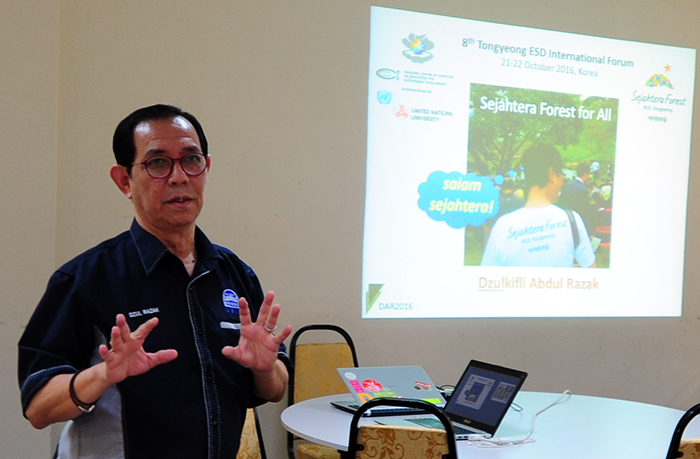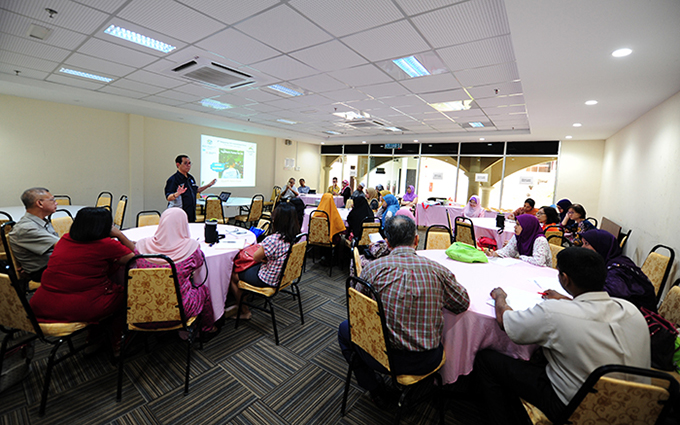NURTURING SUSTAINABILITY THROUGH EDUCATION

USM, PENANG, 24 January 2017 – The right mix of spices will result in the preparation of tasty dishes; such was the parable drawn by the President of the International Association of Universities (IAU), Tan Sri Dato’ Dzulkifli Abdul Razak in highlighting the requirements for sustainability to be widely practiced and accepted.
Dzulkifli was speaking at a workshop in conjunction with a Public Lecture entitled ‘Reimagining and Implementing Education for Sustainable Development (ESD) Practices for Education 2030: Learning and Beyond’ held earlier here and presented by Professor Charles Hopkins, currently the holder of the UNESCO Chair in Reorienting Teacher Education Towards Sustainability.
At the workshop which dwelled on the pedagogical practices in schools to promote understanding on sustainability, Dzulkifli reminded everyone present that sustainable practices need to be holistic in nature, futuristic in outlook and with the emphasis on preservation and conservation. They need to be simple in practice and to be implemented to benefit future generations.
He emphasised on the term ‘Sejahtera’ being a way to identify and understand the concept of sustainability, and to a certain extent, relates to the state of ‘wellbeing’.
“It is stated in the Malaysian Education Philosophy and the idea of ‘sejahtera’ has its origins from the ‘kampong’ way of life and shared values of yore. Even USM has initiated the idea of ‘Kampus Sejahtera’, focusing on sustainable practices on the campus grounds,” he said.

Dzulkifli, who was formerly the USM Vice-Chancellor, also highlighted the idea of ‘sejahtera’ being adopted RCE Tongyeong in Korea, where they have established the ‘Sejahtera Forest Eco-Park and Centre’ for the public to experience and appreciate.
“This is essential as mankind needs to feel ‘humble’ and create a balanced co-existence with the rest of nature. As USM also promotes the idea of a ‘University in a Garden’, it further emphasises on having diversity amidst nature, each one having its own strong ‘roots’ and to be celebrated and sustained,” he added.
He ended the session by reminding all present on the need for the values to be instilled through practices in education, using SPICES – Spiritual, Physical, Intellectual, Cognitive, Ecological, Emotional, Ethical, (Eco)nomic and Societal - as the key to identifying the various aspects that need to co-exist within and throughout mankind.
In addition to Dzulkifli’s presentation, there was also a follow-up session on educational practices to promote sustainable values, conducted by a Fellowship recipient of RCE Tongyeong, where RCE Penang has been selected as RCE of the year 2015-2016.
The event was organised by the Regional Centre of Expertise on Education for Sustainable Development (RCE ESD) Penang and in collaboration with the USM School of Educational Studies.
RCE ESD Penang is among the first seven RCEs within a growing global network of over one-hundred and fifty RCEs. The Global RCE Secretariat is based at the United Nations University Institute for the Advancement of Sustainability (UNU IAS) in Tokyo, Japan.
Text: Mazlan Hanafi Basharudin
- Created on .
- Hits: 2067
